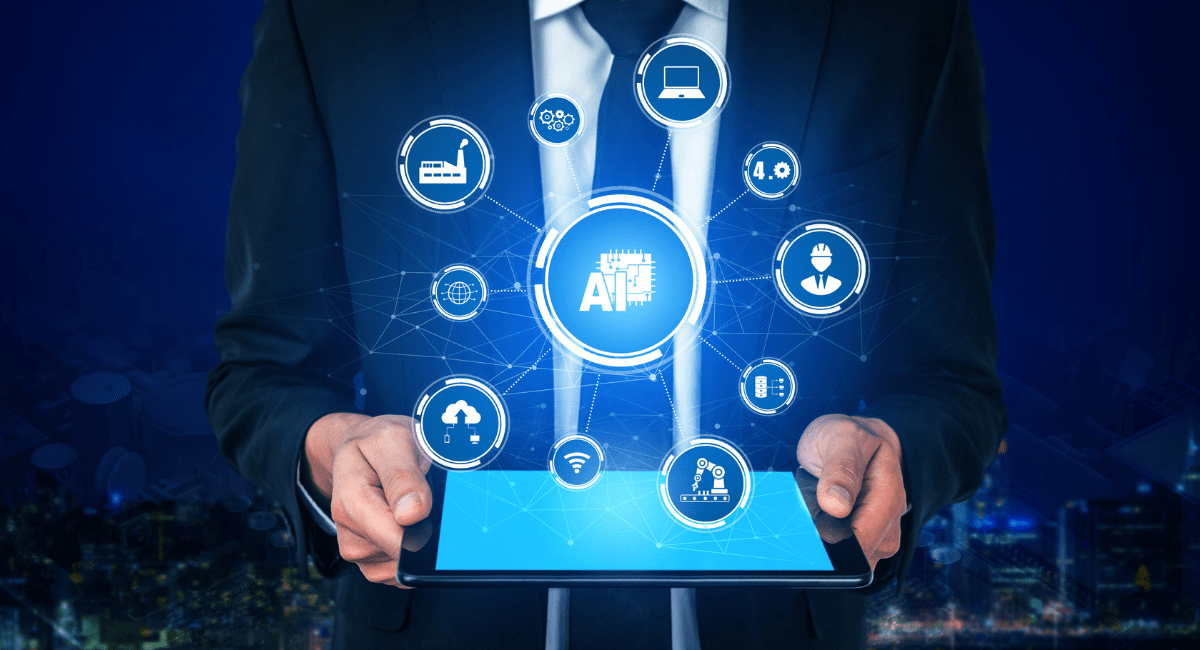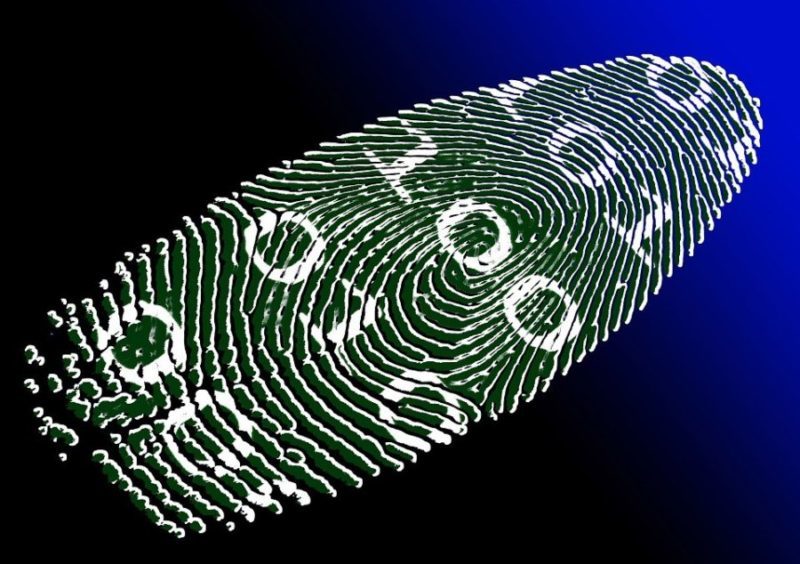Top 10 Amazing Sectors Where Metaverse Disruption Was Major In Respect With Traditional Activities
The Metaverse is a concept that describes a virtual universe, a collective virtual shared space that encompasses all virtual worlds, augmented reality, and the internet as a whole. Metaverse disruption is a vision of a fully immersive, interconnected, and interactive virtual reality space where people can create, explore, and interact with both digital and real-world elements.
In the Metaverse, users can access and navigate through a vast array of interconnected virtual environments, similar to moving between websites on the internet but in a more seamless and immersive way. These environments can be entirely virtual, replicating physical spaces or be an augmented version of the real world, enhancing it with additional digital content.
The idea of the Metaverse draws inspiration from various sources, including science fiction literature, movies, and video games. One of the earliest mentions of the concept can be traced back to the 1992 science fiction novel “Snow Crash” by Neal Stephenson, where the term “Metaverse” was introduced as a virtual reality-based successor to the internet.
The Metaverse is envisioned as a space that goes beyond traditional 2D screens and encompasses immersive technologies such as virtual reality (VR), augmented reality (AR), and mixed reality (MR). It aims to provide users with a sense of presence, allowing them to interact with virtual objects, environments, and other users in real-time.
In the Metaverse, users can create avatars, digital representations of themselves, which can be customized and personalized to reflect their preferences and identities. These avatars serve as the users’ digital presence, allowing them to interact and communicate with others in the virtual space.
The Metaverse disruption offers a wide range of possibilities and applications across various domains. It can serve as a platform for social interaction, enabling people from different parts of the world to come together, collaborate, and engage in shared experiences. It can also be a space for entertainment, with virtual concerts, gaming experiences, and immersive storytelling.
Moreover, the Metaverse has implications for business and commerce. It can provide a platform for virtual marketplaces, where users can buy and sell virtual goods, digital assets, and services. Companies can use the Metaverse as a marketing tool, creating virtual experiences and environments to engage with their customers in novel ways.
The development of the Metaverse involves technological challenges, including creating realistic graphics, immersive interfaces, and seamless interoperability between different virtual worlds and platforms. It requires advancements in areas such as virtual reality, artificial intelligence, blockchain, and cloud computing.
Several companies and organizations are actively working on developing the Metaverse, and some have already made significant strides in this direction. They are building platforms, tools, and technologies to enable the creation, exploration, and interaction within the virtual universe. However, the concept is still in its early stages, and a fully realized Metaverse as depicted in science fiction is yet to be achieved.
Also read : Top 7 Skills Required To Become A Metaverse Engineer
Importance of Metaverse for the economy
The Metaverse disruption holds significant importance for the economy due to its potential to reshape various aspects of business, commerce, and economic activity. Here are several key reasons why the Metaverse is important for the economy:
1. New Business Opportunities: The Metaverse creates new avenues for entrepreneurship and business innovation. As the virtual universe expands, there will be an increasing demand for virtual goods, services, and experiences. This opens up opportunities for companies to develop and monetize virtual products, virtual real estate, virtual events, virtual entertainment, and more. It can foster the growth of new industries and create jobs in areas such as virtual world development, virtual asset creation, virtual marketing, and virtual commerce.
2. Virtual Economy: The Metaverse enables the emergence of a virtual economy, where users can buy, sell, and trade virtual goods and digital assets. Virtual currencies, such as cryptocurrencies, can be used within the Metaverse for transactions, creating a new market and financial ecosystem. This economy has the potential to generate substantial revenue streams and drive economic growth. It also allows for the development of decentralized marketplaces, where users have more control over their digital assets and can participate in peer-to-peer transactions.
3. Enhanced Customer Engagement: The Metaverse provides businesses with new ways to engage and interact with customers. Companies can create immersive and personalized experiences within the virtual universe, enabling users to explore products, try virtual prototypes, and engage in virtual events. This deeper level of engagement can lead to increased customer loyalty, brand recognition, and ultimately, sales. Moreover, the Metaverse can facilitate targeted advertising and data-driven marketing strategies, as users’ digital footprints and interactions can be analyzed to provide tailored recommendations and personalized experiences.
4. Global Reach and Accessibility: The Metaverse transcends geographical boundaries and physical limitations. It allows businesses to reach a global audience without the need for physical infrastructure or presence. Small and medium-sized enterprises (SMEs) can leverage the Metaverse to expand their reach and access new markets, leveling the playing field with larger corporations. Moreover, the Metaverse can provide opportunities for individuals in remote or disadvantaged areas to participate in the digital economy, opening up new possibilities for economic inclusion and empowerment.
5. Collaboration and Remote Work: The Metaverse has the potential to revolutionize collaboration and remote work practices. It can provide virtual workspaces, where teams can collaborate, communicate, and share information in real-time, regardless of their physical locations. This has implications for productivity, efficiency, and cost savings. The Metaverse can also facilitate remote learning and training, enabling individuals to acquire new skills and knowledge without the need for physical presence. It offers flexibility and scalability for businesses, allowing them to tap into a global talent pool and reduce overhead costs associated with physical office spaces.
6. Data and Insights: The Metaverse generates vast amounts of data through user interactions, transactions, and virtual experiences. This data can be harnessed by businesses to gain valuable insights into user preferences, behavior patterns, and market trends. Companies can use this data to refine their products, services, and marketing strategies, making data-driven decisions and staying ahead of the competition. It can also lead to the development of new analytics tools and services specifically designed for the Metaverse.
Metaverse disruption in traditional activities
The metaverse is a new virtual world that is quickly gaining popularity. It has the potential to disrupt many traditional industries, including:
- Entertainment: The metaverse disruption can revolutionize the way we consume entertainment. For example, we can watch movies and TV shows in a more immersive environment, or attend concerts and sporting events without ever leaving our homes.
- Education: The metaverse can make learning more interactive and engaging. Students can explore virtual worlds, collaborate with other students, and interact with virtual instructors.
- Work: The metaverse can make remote work more productive and collaborative. Employees can attend meetings, collaborate on projects, and socialize with colleagues in a virtual space.
- Retail: The metaverse can create new opportunities for retailers to sell products and services. Customers can browse products in a virtual store, try them on virtually, and even have them delivered to their homes without ever having to leave their homes.
- Healthcare: The metaverse can be used to provide remote healthcare services, such as virtual doctor’s visits and therapy sessions. It can also be used to train medical professionals and provide patients with access to educational resources.
- Real estate: The metaverse can be used to showcase properties for sale or rent. Potential buyers and renters can take virtual tours of properties, and even interact with the environment in a realistic way.
- Travel: The metaverse can be used to plan and book travel arrangements. Users can explore virtual versions of destinations, and even interact with locals in a realistic way.
- Fashion: The metaverse disruption can be used to showcase new fashion trends and products. Users can try on clothes virtually, and even purchase them without ever having to leave their homes.
- Gaming: The metaverse is already being used for gaming, and it has the potential to revolutionize the way we play games. For example, we can play games with friends from all over the world, or even create our own games.
- Social media: The metaverse can be used to create new social media platforms that are more immersive and engaging. Users can interact with each other in a more realistic way, and even create their own virtual worlds.
The metaverse disruption is still in its early stages, but it has the potential to disrupt many traditional industries. It will be interesting to see how it evolves in the years to come.
Also read : Top 10 Metaverse Stocks To Invest In 2023
Risks associated with Metaverse
While the Metaverse disruption holds immense potential, it also carries certain risks and challenges that need to be addressed. Here are some of the key risks associated with the Metaverse:
1. Privacy and Security: As the Metaverse becomes more prevalent, privacy and security concerns become paramount. The collection, storage, and use of vast amounts of user data within the virtual universe raise questions about data privacy, ownership, and control. Unauthorized access, data breaches, identity theft, and surveillance are potential risks that need to be addressed. Additionally, there is a need for robust security measures to protect users from cyber threats, hacking, and malicious activities within the Metaverse.
2. Digital Divide and Inequality: The Metaverse disruption has the potential to exacerbate existing social and economic inequalities. Not everyone may have equal access to the necessary technology, resources, or connectivity to fully participate in the Metaverse. This can create a digital divide, where certain groups or regions are left behind, leading to further disparities in education, employment, and opportunities. Efforts must be made to ensure inclusive access and bridge the digital divide to prevent the Metaverse from widening existing inequalities.
3. Addiction and Mental Health Concerns: The immersive and addictive nature of the Metaverse can pose risks to individuals’ mental health and well-being. Spending excessive amounts of time in virtual environments can lead to social isolation, addiction, and neglect of real-world responsibilities. It is crucial to educate users about responsible and balanced usage of the Metaverse, as well as implementing safeguards and mechanisms to prevent and address issues related to addiction and mental health.
4. Ethical Considerations: The Metaverse raises various ethical dilemmas and considerations. Virtual environments can blur the line between reality and fiction, leading to questions of morality, consent, and ethical behavior. Issues such as virtual crime, harassment, exploitation, and inappropriate content need to be addressed through robust community guidelines, content moderation, and user empowerment tools. Companies and developers must prioritize ethical practices and ensure that user safety and well-being are paramount within the Metaverse.
5. Economic Implications: While the Metaverse presents new business opportunities, it can also disrupt existing industries and economies. Traditional brick-and-mortar businesses may face challenges as virtual alternatives emerge. Job displacement and changes in employment patterns can occur as certain roles become obsolete or transformed in the virtual world. It is crucial to consider the economic implications of the Metaverse and develop strategies to mitigate potential negative impacts, ensuring a smooth transition for affected industries and workers.
6. Legal and Regulatory Challenges: The Metaverse disruption raises complex legal and regulatory challenges. Determining jurisdiction, enforcing intellectual property rights, addressing virtual property ownership, and defining liability in virtual environments can be intricate. Existing legal frameworks may not be equipped to handle the unique aspects of the Metaverse. Establishing clear guidelines, regulations, and standards that protect users’ rights, privacy, and safety while fostering innovation and creativity will be critical.
7. Content Quality and Trustworthiness: With the vast amount of user-generated content within the Metaverse, ensuring content quality, reliability, and trustworthiness becomes essential. Misinformation, fake products, scams, and malicious activities can proliferate within virtual environments. Implementing content moderation systems, user reporting mechanisms, and authenticity verification measures are necessary to maintain the integrity and trustworthiness of the Metaverse.
Metaverse presents several risks and challenges related to privacy and security, digital divide, addiction and mental health, ethics, economic implications, legal and regulatory considerations, and content quality. To harness the potential of the Metaverse while mitigating these risks, it is crucial to address these challenges proactively through a combination of technological advancements, policies, regulations, and user education.
Future of Metaverse
The future of the Metaverse disruption holds immense potential and is likely to have a significant impact on various aspects of society, technology, and human interaction. While the concept is still evolving and its full realization is yet to be achieved, there are several key trends and possibilities that can shape the future of the Metaverse:
1. Advancements in Immersive Technologies: The Metaverse heavily relies on immersive technologies such as virtual reality (VR), augmented reality (AR), and mixed reality (MR). The future of the Metaverse will witness advancements in these technologies, including improvements in hardware, display resolution, haptic feedback, and motion tracking. These advancements will enhance the sense of presence and realism, making the virtual experiences within the Metaverse more immersive and engaging.
2. Seamless Cross-Platform Integration: As the Metaverse disruption continues to evolve, a crucial aspect of its future will be seamless cross-platform integration. Currently, various virtual reality platforms and virtual worlds exist independently. The future of the Metaverse will involve interoperability, allowing users to seamlessly move between different virtual environments and experiences regardless of the hardware or platform they are using. This interoperability will foster a more cohesive and interconnected virtual universe.
3. Social and Collaborative Spaces: The future of the Metaverse will emphasize social interaction and collaborative spaces. These spaces will enable users to connect, communicate, and collaborate with others in real-time within the virtual environment. Social networking functionalities, voice and gesture recognition, and realistic avatar interactions will enhance the sense of presence and foster meaningful social connections. Virtual workspaces and collaborative tools will also facilitate remote work and collaboration, allowing teams to work together regardless of their physical locations.
4. User-Created Content and Economies: User-generated content will play a significant role in shaping the future of the Metaverse. Users will have the ability to create and share their own virtual experiences, objects, and environments within the virtual universe. This will lead to the emergence of user-driven virtual economies, where individuals can monetize their creations and participate in virtual commerce. Blockchain technology and decentralized marketplaces can empower users with ownership and control over their digital assets, enabling secure and transparent transactions within the Metaverse.
5. Enhanced AI and Virtual Agents: Artificial intelligence (AI) will have a crucial role in the future of the Metaverse. AI-powered virtual agents will provide personalized and context-aware experiences, acting as guides, assistants, and companions within the virtual universe. These virtual agents will be capable of natural language processing, emotion recognition, and intelligent behavior, enhancing the interactivity and immersion within the Metaverse.
6. Real-World Integration and Augmented Reality: The future of the Metaverse disruption will involve increased integration between the virtual and real worlds. Augmented reality (AR) will play a significant role in this integration, overlaying digital content onto the physical environment. Users will be able to seamlessly transition between the virtual and real worlds, augmenting their real-world experiences with virtual elements. This integration opens up possibilities for location-based experiences, interactive advertising, virtual tourism, and practical applications in areas such as architecture, education, and healthcare.
7. Ethical Considerations and Governance: As the Metaverse evolves, ethical considerations and governance frameworks will become increasingly important. Issues related to privacy, data ownership, digital rights, content moderation, and user safety will need to be addressed to ensure a safe, inclusive, and ethical Metaverse. Collaboration between industry stakeholders, policymakers, and user communities will be crucial in establishing guidelines and standards that protect users’ rights and well-being.
8. Virtual Education and Training: The Metaverse has the potential to revolutionize education and training. Virtual classrooms, immersive simulations, and interactive learning experiences can provide engaging and personalized educational opportunities. It can also offer practical training in various fields such as healthcare, aviation, and engineering, allowing learners to acquire hands-on skills in a virtual environment.
9. Health and Well-being Applications: The future of the Metaverse will see the integration of health and well-being applications. Virtual reality can be used for therapeutic purposes, such as exposure therapy, pain management, and mental health treatments. The Metaverse can also facilitate virtual fitness experiences, allowing users to engage in interactive workouts, monitor their health metrics, and connect with fitness communities.
10. Environmental and Sustainable Practices: The Metaverse can promote environmental sustainability by reducing the need for physical infrastructure and travel. Virtual meetings, conferences, and events within the Metaverse can contribute to reduced carbon emissions. Additionally, the virtual economy can incentivize sustainable practices by rewarding users for engaging in environmentally friendly activities within the virtual environment.
11. Cultural Preservation and Heritage: The Metaverse disruption can serve as a platform for preserving and experiencing cultural heritage. Virtual museums, historical recreations, and interactive exhibitions can provide immersive experiences that promote cultural understanding and appreciation. It can also offer opportunities for cultural exchange, allowing people from different parts of the world to connect and share their traditions and heritage.
12. Enhanced Entertainment Experiences: The future of the Metaverse will see the evolution of entertainment experiences. Virtual concerts, immersive storytelling, and interactive gaming can provide unique and engaging entertainment options. Virtual reality theme parks and immersive attractions can offer thrilling experiences that go beyond the limitations of the physical world.
13. Virtual Governance and Decentralization: As the Metaverse evolves, there will be a need for virtual governance models. Decentralized systems, blockchain technology, and smart contracts can enable transparent and autonomous governance within the virtual universe. Users can participate in decision-making processes, influence virtual policies, and contribute to the development of the Metaverse.
14. Integration with Internet of Things (IoT): The Metaverse can be integrated with the Internet of Things (IoT), enabling the interaction between virtual and physical objects. Smart homes, connected devices, and IoT sensors can provide real-time data and create a seamless integration between the virtual and physical worlds within the Metaverse. This integration opens up possibilities for smart cities, intelligent transportation systems, and personalized experiences.
15. Evolution of Business Models: The future of the Metaverse disruption will witness the evolution of business models. Traditional revenue streams such as advertising, subscription-based models, and virtual commerce will be further enhanced and expanded within the Metaverse. Companies may also explore innovative monetization strategies, such as virtual property rentals, digital asset trading platforms, and virtual service marketplaces.
16. Ethical AI and Virtual Ethics: As AI plays a more prominent role within the Metaverse, ensuring ethical AI practices becomes crucial. Designing AI algorithms that prioritize user well-being, fairness, and inclusivity will be essential. Additionally, the concept of virtual ethics may emerge, focusing on defining ethical guidelines and principles specific to the virtual universe to promote responsible and ethical behavior within the Metaverse.
https://twitter.com/i/status/1516307493646970883
These points highlight some of the exciting possibilities and trends that are likely to shape the future of the Metaverse disruption. As technology continues to advance and stakeholders work together, the potential for immersive, interconnected, and transformative experiences within the Metaverse is poised to expand further.
Stay informed with daily updates from Blockchain Magazine on Google News. Click here to follow us and mark as favorite: [Blockchain Magazine on Google News].
Get Blockchain Insights In Inbox
Stay ahead of the curve with expert analysis and market updates.
latest from tech
Disclaimer: Any post shared by a third-party agency are sponsored and Blockchain Magazine has no views on any such posts. The views and opinions expressed in this post are those of the clients and do not necessarily reflect the official policy or position of Blockchain Magazine. The information provided in this post is for informational purposes only and should not be considered as financial, investment, or professional advice. Blockchain Magazine does not endorse or promote any specific products, services, or companies mentioned in this posts. Readers are encouraged to conduct their own research and consult with a qualified professional before making any financial decisions. The featured image used is just a creative depiction of the title and it does not intend to hurt sentiments of any person or institution. If it hurts anyone sentiments, please do not hesitate to reach out to Blockchain Magazine.

 Bitcoin
Bitcoin  Ethereum
Ethereum  XRP
XRP  Tether
Tether  Solana
Solana  Dogecoin
Dogecoin  USDC
USDC  Cardano
Cardano  Lido Staked Ether
Lido Staked Ether  TRON
TRON  Chainlink
Chainlink  Avalanche
Avalanche  Stellar
Stellar  Wrapped stETH
Wrapped stETH  Wrapped Bitcoin
Wrapped Bitcoin  Sui
Sui  Hedera
Hedera  Toncoin
Toncoin  Shiba Inu
Shiba Inu  WETH
WETH  Polkadot
Polkadot  Parkcoin
Parkcoin  LEO Token
LEO Token  Litecoin
Litecoin  Bitget Token
Bitget Token  Bitcoin Cash
Bitcoin Cash  Uniswap
Uniswap  Hyperliquid
Hyperliquid  Official Trump
Official Trump  Wrapped eETH
Wrapped eETH  Pepe
Pepe  USDS
USDS  NEAR Protocol
NEAR Protocol  Ethena USDe
Ethena USDe  Aave
Aave  Aptos
Aptos  Internet Computer
Internet Computer  Ondo
Ondo  Ethereum Classic
Ethereum Classic  Monero
Monero  POL (ex-MATIC)
POL (ex-MATIC)  Algorand
Algorand  Cronos
Cronos  Dai
Dai  OKB
OKB  Mantle
Mantle  MANTRA
MANTRA  Render
Render 




